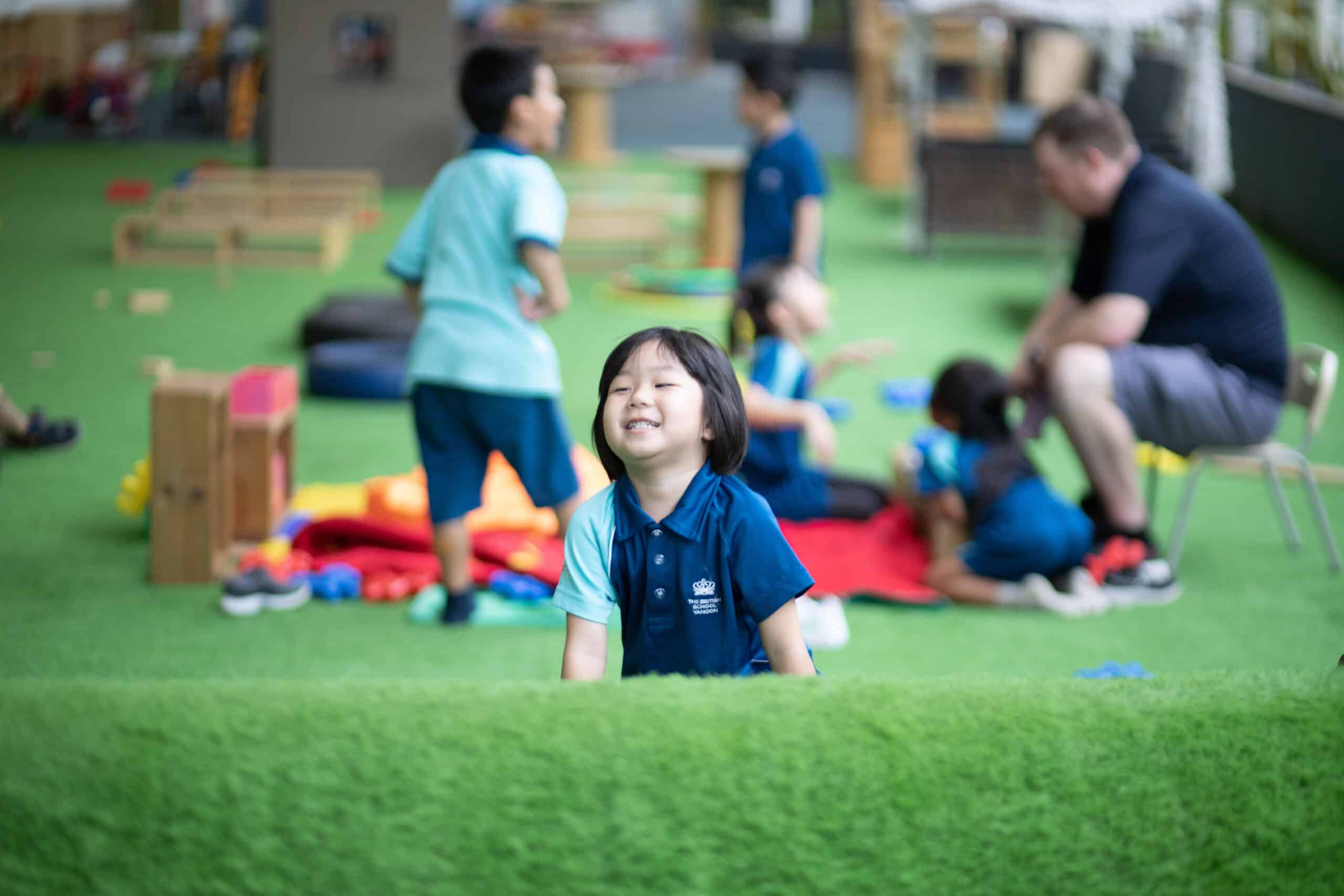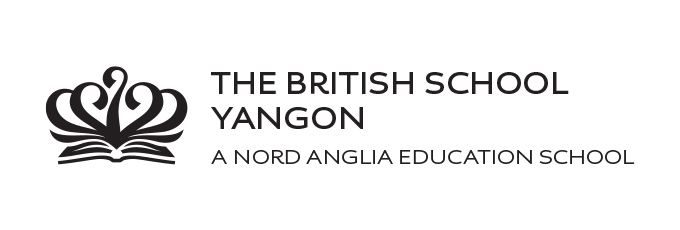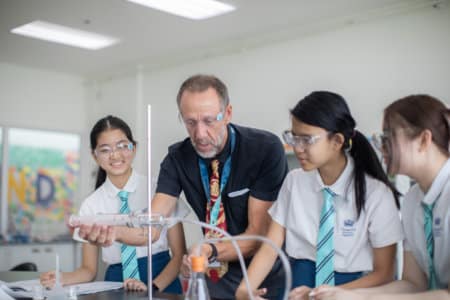The younger the student, the better their development. Today, while the importance of early years education is now widely accepted, it’s never been more urgent for all schools to ensure they are high quality. “We’re in a bit of an unusual situation where the children have obviously been online for quite a long time due to COVID-19,” says Laura Heathfield, the new Deputy Head of Primary at The British School Yangon.
“So many children only came back to school last year. They’re still learning skills, by playing with others, making their own decisions and working as a team. At the moment, there is a school-wide focus on play-based learning to enhance children’s cognitive, social and emotional development but it is the main focus of our Early Years Foundation Stage (EYFS) curriculum.”
The British School Yangon is part of the Nord Anglia Education family of global schools, which gives it access to world-class resources, opportunities, and technology aimed at helping every child reach their full potential. Following the English National Curriculum, the school offers exceptional learning experiences both in and beyond the classroom. With full support from teachers, every child goes on a learning journey that’s as unique as they are.
And at The British School Yangon’s Early Years, the happiness, confidence and growth of your child are a top priority. EYFS covers pre-nursery, nursery, and reception, where every day is packed with a purposefully planned mix of activities, like storytelling, reading, maths, discussion, and outdoor fun, as well as lots of socialising. Students are encouraged to discover, experiment, and learn through play. “That play-based learning and learning to be with other children is so important all the way through to year six,” says Heathfield.
Play is a crucial component in the best early years programmes around the world. A report by the Office for Standards in Education, Children’s Services and Skills (Ofsted) found that most countries recommend a mixture of free and guided play, with England viewing play as “essential for children’s development.” “Ofsted recognises the important role of adults in considering how best to teach what children need to learn (through play or otherwise), by considering what the children already know,” says the report.

Play-based learning is paramount at The British School Yangon. Source: The British School Yangon
The school takes a holistic approach to education. This allows students to explore and develop skills naturally, ensuring their cognitive, social, emotional, and physical growth.
Good facilities make this possible. “Primary teachers have traditional teaching classrooms, and then they have a breakout creative space,” says Heathfield. “So just the opportunity for that is absolutely brilliant for the staff and also the opportunity in terms of the space and the resources which go above and beyond what you’d be able to have elsewhere.”
The brand-new, purpose-built early years environment gives kids the space for free-flowing movement throughout the day. This fun and interactive garden has different pockets to explore. The classroom walls are also covered in arts, crafts and language-based presentations, creating a colourful and interactive learning space.
Creating a safe space, within and beyond campus grounds, is essential for The British School Yangon. It has rigorous recruitment procedures, comprehensive staff training on NAE policies, and regularly updated maintenance of well-defined safeguarding policies. The British School Yangon is conveniently located in a quiet and safe area in the city, adjacent to Victoria Hospital. “I want the children to be able to take safe risks, and we’ve got the facilities to do that,” she says. “It’s allowing the children to take those risks and become independent in the safe setting that we’ve got.”
Within this guided, protected cocoon, young minds learn about the world. “Within the British curriculum, for example, in history, we’d be learning about the Romans, or we’d be learning about The Tudors, but there’s no real context within the country; there’s nothing that we can work on,” says Heathfield. “We are making sure we’re adapting so that it’s the Myanmar culture and the Myanmar history that we’re also teaching.”

The British School Yangon regularly communicates with parents and involves them in activities and events. Source: The British School Yangon
The school flexes in other ways as well. “We’re really adaptive in terms of what we’re teaching,” says Heathfield. “There’s no stagnant planning, it’s all adaptive teaching. If we start teaching a year five skill and realise they missed the year four skill, we go back and we fill those gaps in their learning so that adaptive planning is really important.” This kind of learning, coupled with initiatives focused on developing resilience, self-esteem, and social-emotional skills, is a key building block of a well-rounded education. It aids the growth and development of a child’s relationships and their strong sense of self.
With The British School Yangon, children do not have to achieve all of this alone. Parents have regular communication with teachers and often join workshops and parent engagement events. They join stay and plan sessions, watch how their children learn by playing and work with other parents in specialised workshops too. “It’s making sure that we’re sending the learning home so the parents know what we’re doing in school so they can mimic it outside of school also,” says Heathfield.
Give your child the best early years experience and enrol them at The British School Yangon. Click here to apply now.
Follow The British School Yangon on Facebook, X, LinkedIn, Instagram and YouTube.












